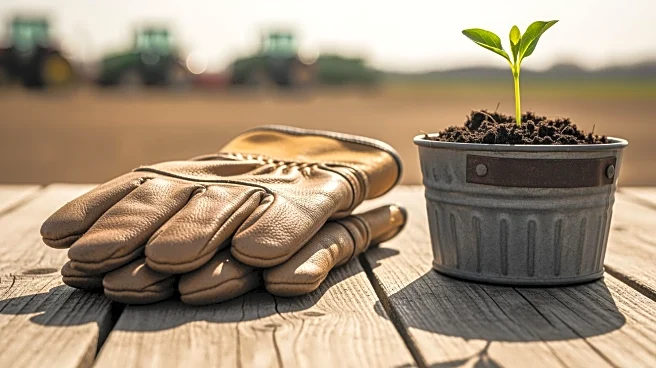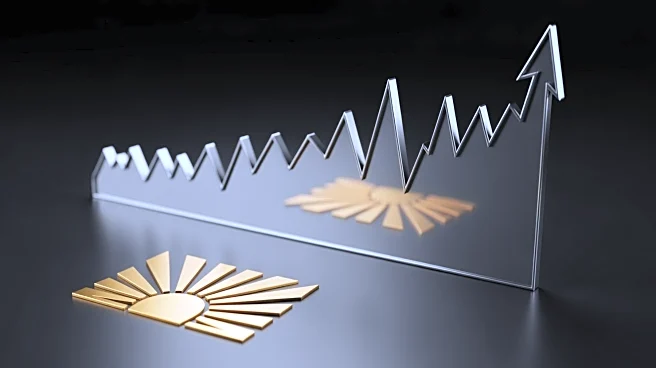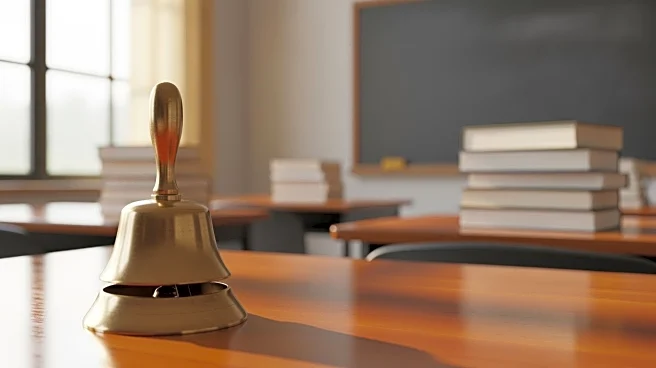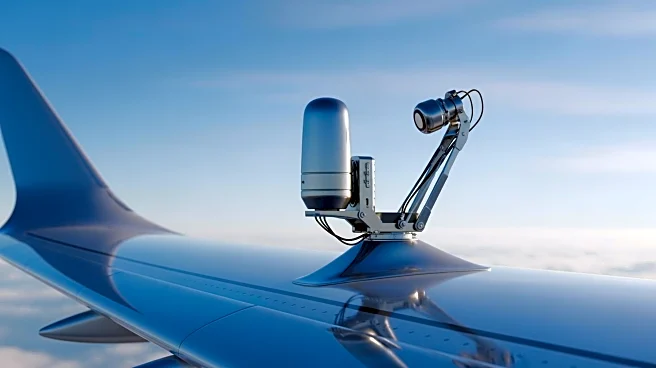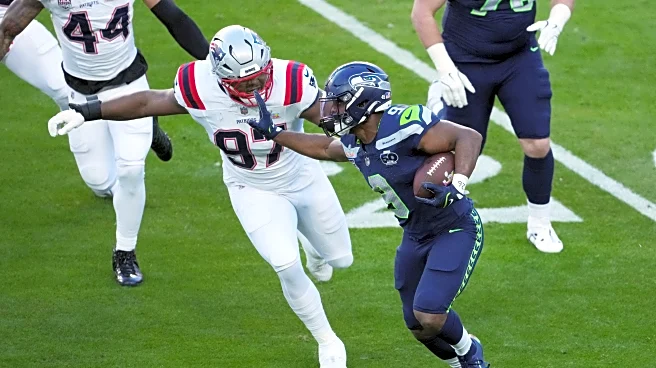Rapid Read • 9 min read
Newly released images from Jeffrey Epstein's Manhattan townhouse reveal a series of unsettling artifacts and surveillance setups. The townhouse, located on the Upper East Side, was equipped with surveillance cameras in multiple bedrooms, suggesting a high level of monitoring within the premises. Among the items found were a first edition of Vladimir Nabokov's novel 'Lolita,' which is known for its controversial content, and a $1 bill signed by Bill Gates with a note reading 'I was wrong!' The townhouse also contained a sculpture of a woman in a bridal gown hanging from a rope and numerous framed fake eyeballs. Additionally, the walls were adorned with photos of prominent figures such as Saudi Arabia's Crown Prince Mohammed bin Salman, President Trump, former President Bill Clinton, and Pope John Paul II. The images, published by the New York Times, provide a glimpse into the environment where Epstein entertained influential individuals before his arrest and subsequent suicide in 2019.
AD
The revelations about Epstein's townhouse underscore the extent of his connections with powerful figures and the bizarre nature of his lifestyle. The presence of surveillance cameras raises questions about privacy and the potential for blackmail, given Epstein's history of exploiting vulnerable individuals. The artifacts, including the signed bill by Bill Gates and the controversial novel 'Lolita,' highlight the eccentric and possibly manipulative environment Epstein cultivated. This information could impact ongoing investigations into Epstein's network and the individuals associated with him, potentially leading to further legal and social ramifications. The townhouse's contents may also influence public perception of the figures involved, affecting their reputations and careers.
The release of these images may prompt further scrutiny of Epstein's connections and the activities that took place within his townhouse. Investigators and legal authorities might explore the implications of the surveillance setup and the identities of those captured on camera. There could be renewed calls for accountability among the high-profile individuals linked to Epstein, as well as demands for transparency regarding their interactions with him. Additionally, the public and media may continue to investigate the broader network of Epstein's associates, seeking to uncover any hidden activities or relationships.
The artifacts and surveillance setup in Epstein's townhouse raise ethical questions about privacy, consent, and the exploitation of individuals. The presence of surveillance cameras in private spaces suggests a violation of personal boundaries and potential coercion. The cultural impact of Epstein's lifestyle, as reflected in the items found, may lead to discussions about the influence of wealth and power in shaping social norms and behaviors. Long-term, these revelations could contribute to a shift in how society views and addresses issues of exploitation and accountability among the elite.
AD
More Stories You Might Enjoy
